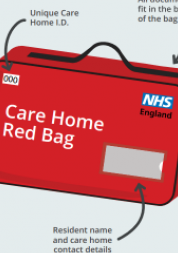Hospital Discharge Report
Our findings showed patients had mixed experiences in terms of the coordination and communication they received before, during and after their discharge. This was due to a range of factors, including the importance and impact of unpaid carers, their level of familiarity with hospital processes, their capacity to navigate the system, and the strength of their relationship to the health and care system in general.
The report identifies recommendations for each step of the discharge process, from the planning stage to the day of discharge to aftercare and follow-up.
When planning for discharge, we stress the importance of communication between hospitals and patients as well as their carers. We also found room for improvement in staff responsiveness and continuity of care within a multidisciplinary working environment.
On the day of discharge itself, hospitals should make sure any necessary patient medication will be prepared by the pharmacy in time for their departure. The hospital transport arrangement system should be reviewed to ensure information about the service, ease of booking and increased flexibility.
In terms of aftercare and follow-up, hospitals should provide specific contact information for patient concerns. Patients also need clarification on which team will be responsible for their aftercare and should receive guidance on self-management of their conditions when they return home. Lastly, hospitals should provide more information on holistic support options for patients, such as the charity and voluntary sector.

